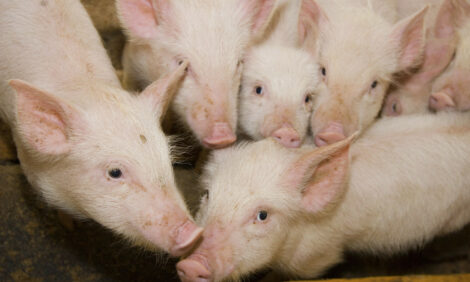



How could African swine fever enter the US?
Three possible pathways of entry have industry leaders concerned about African swine fever (ASF) entering the US.“There's definitely concern,” said Patrick Webb, DVM and Director of Swine Health Programs with the National Pork Board. “African swine fever falls into the category of a foreign animal disease such as foot-and-mouth disease or classical swine fever.”
ASF poses a risk with three possible routes or pathways into the US. First, someone could bring ASF in deliberately. Second, it could enter via passengers coming from countries who are carrying meat and/or meat products that are ASF-positive into the United States.
"They might not be doing it deliberately. They were just visiting, and they liked it, but it’s possible to get ASF into the country that way,” said Dr. Webb.
In some US states, a regulated process allows for the feeding of meat-containing plate waste to pigs. So, if meat containing ASF were brought into the US and fed to the pig population, there is a chance it could get into the pipeline and potentially infect pigs that way.
“It is regulated though, they have to cook it, and there are certain rules they have to follow,” he noted. “They have to be licensed and inspected. But it does represent a pathway that it could come in.”
The third pathway is a newer route for ASF entry that is being researched, which is feed ingredients.
“We get a lot of feed ingredients from China, and there has been some preliminary work done by Dr Scott Dee that has looked at, in experimental conditions, those ingredients' ability to actually take certain viruses and keep them alive, during the transportation process from China to the United States,” he said. “In that situation, experimentally, African swine fever was used and there were certain products, organic soybean meal for one, that could keep the virus alive, so that's obviously a concerning pathway. Now we've really got to dig into it to assess risk, and then how do you mitigate that risk?”
Monitoring the ASF pathways of entry
Related to international travel, US Customs and Border Protection and USDA's Plant Protection Quarantine work very closely to try to mitigate the risk posed by ASF through trade rules and regulations.
“USDA does a nice job of making sure that the trade that we do is low risk or no risk, but you have people that are potentially bringing these products in and so that's when you rely on US Customs and Border Protection. They have the technology to help get to those flights that maybe have more passengers that are coming from areas that have ASF, so they can try to interdict product,” he noted. “Then you've seen the cute little Beagle Brigade? Once somebody gets on the ground here, and they're waiting to go through US Customs, those dogs do incredibly good work in confiscating product that otherwise would make it into the US.”
Suspect ASF on-farm?
If a producer suspects African swine fever may be in the herd, the producer should call their state veterinarian's office or the office of the area veterinarian in charge for USDA and file a report. An official investigation, called a foreign animal disease investigation, will be conducted by a specially trained veterinarian. The veterinarian will come out to the farm and collect diagnostic samples which they will transport to the laboratory.
“The laboratory plays a very crucial role - the diagnostic capabilities of the lab, the tests that they’re using - you need them specific and you need them sensitive because you're trying to rule in or rule out a foreign animal disease,” he explained. ”You've got to have good tests to do that. You've got to have tests that you can trust.”
There are several types of tests that the laboratories will run, but one of the more valuable that gets your results back to you earlier is PCR, he noted. Laboratories that are approved to run PCR are set up, which allows you more information sooner, as samples are going to the official laboratory to be tested there.
“The PCR tests are very good and have proven very valuable in our foreign animal disease investigations in trying to help rule out the possibility of diseases,” concluded Dr. Webb.
For more information about African swine fever diagnostics, click here or connect to the Thermo Fisher Scientific Swine Resource Center.







